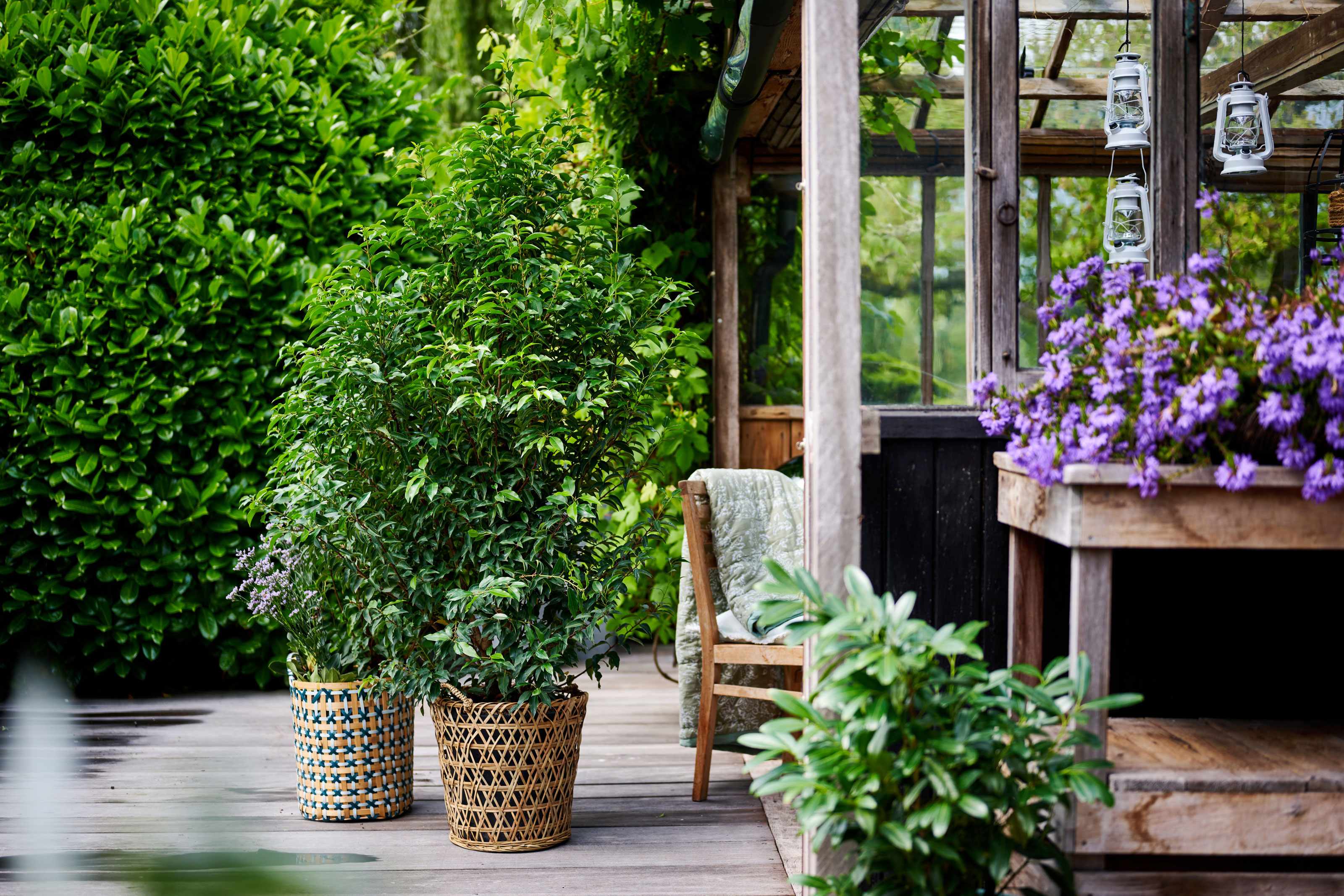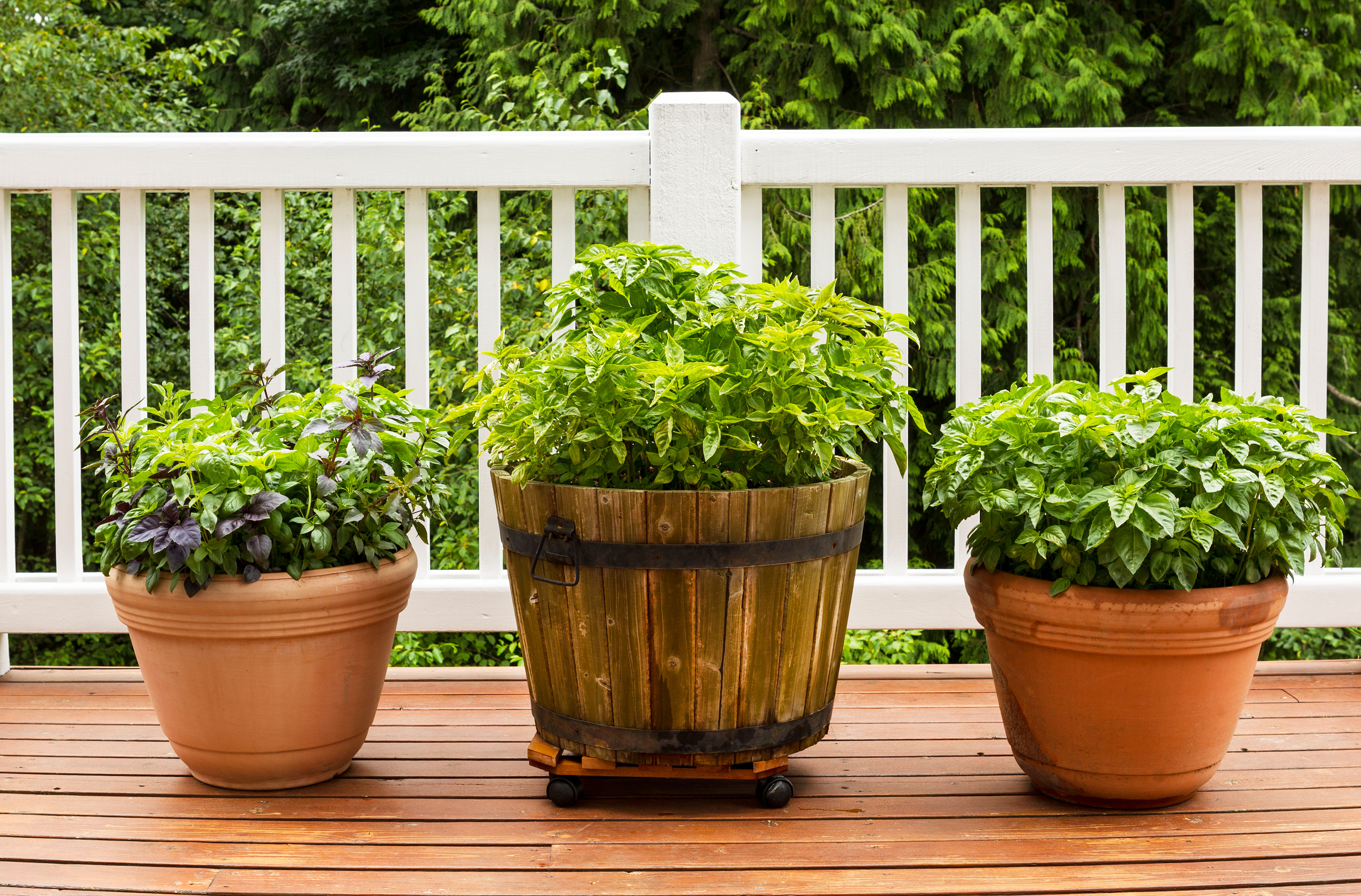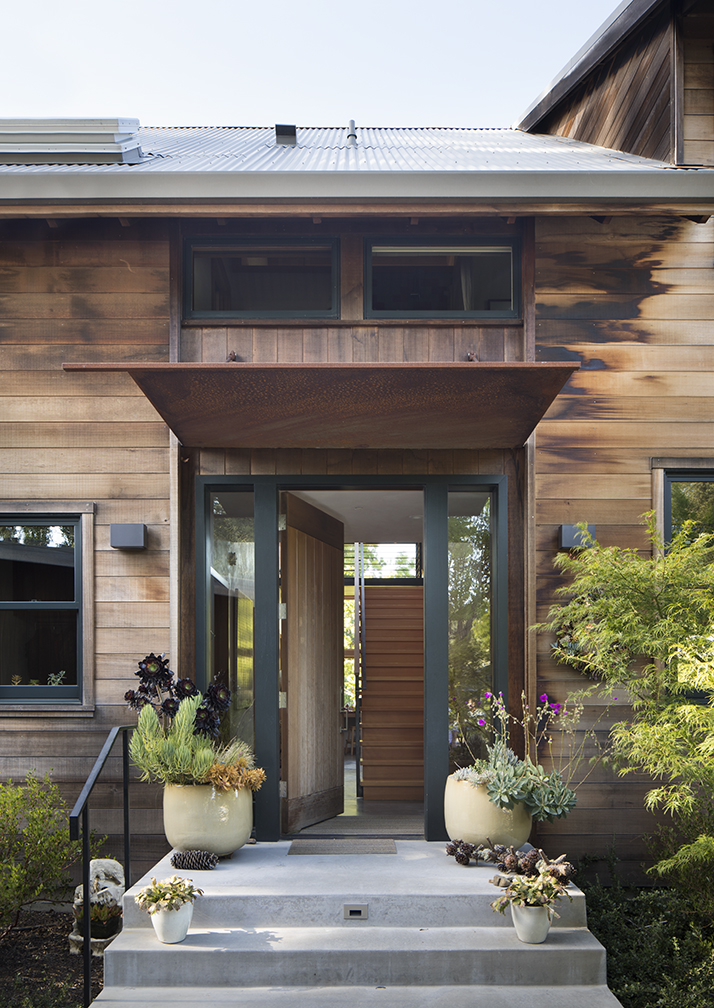
Summer gardening is at its peak and it couldn't be a better time to tend to your backyard and help them flourish. Commonly, this also includes adopting a couple of pre-grown beauties into your garden.
Whether it's a growing fruit tree or a flower crop, buying them in their growing stages is an easy way to fill up your garden without having to wait for seeds to sprout. But the one thing that most gardening enthusiasts are weary of is the necessary repotting.
Luckily, we stumbled upon a clever little trick that guarantees perfect repotting every time. Whether you're looking to re-pot a houseplant successfully or you're simply transferring one of your much-loved shrubs into another pot — container gardening has never been so simple, until now and trick is sure to come in handy. Best of all, it has the experts' stamp of approval.
@homeonchanson ♬ A Bar Song (Tipsy) - Shaboozey
Quick hack for perfect repotting

As seen in the video above, courtesy of digital creator Brittany (@homeonchanson), here are a few steps you can take for this handy repotting trick. First fill your planter halfway with fresh planting soil and then place the new plant in its pot, into the large planter. Then, fill the soil into the gap surrounding the pot and remove it from the new planter. Finally, remove the plastic pot from the plant, gently shake the bottom of the roots free, and load it back into the new planter — which now has a perfectly snug spot ready to go.
This is such a great hack and while it makes the repotting process fairly quick, it also reduces the mess that often comes about when giving your plants a fresh pot.
Gardening expert Tony O'Neill tells us that this gardening trick for quick repotting can be very helpful. 'This method often involves loosening the root ball gently and transferring the plant to a new pot with minimal disturbance,' he notes. 'And is especially neat for gardeners looking to save time and minimize stress on their plants.'
This trick can also be used for repotting a houseplant, and Tony finds that this method is easy to follow and highly efficient. 'Have your new pot, potting mix, and any tools you might need ready before you start,' he advises. 'This ensures a smooth and quick transition.'
Tony also recommends handing the plants with care to ensure a safe repotting process. 'When removing the plant from its old pot, gently squeeze the sides of the pot or use a knife to loosen the edges,' he says. 'Avoid pulling the plant by its stems or leaves, which can cause damage.'

Introducing a couple of potted plants and arranging them beside your doorway is a quickfire way to elevate curb appeal and one of our favorite porch finishing touches. But before transferring your plant to its new home, Tony recommends inspecting the roots for signs of rot or disease. He also suggests trimming any damaged or overly long roots to encourage healthy growth in the new pot.
'After repotting, water the plant thoroughly to help settle the soil and eliminate air pockets around the roots,' he says. 'And keep an eye on the plant for a few weeks after repotting to make sure it's getting the right amount of light and water as it adjusts to its new pot.'
According to landscaping expert Marco Picano, this efficient method allows you to scoop out the entire plant and root ball in one motion, which helps avoid tearing any roots.
However, Marco also finds that the new planter should be chosen with careful consideration. 'Make sure you choose a pot one size larger and that has drainage holes,' he says. 'Too large of a pot can lead to root rot from excess moisture. With the proper technique and timing, repotting using this method can stimulate new root and foliage growth leading to a healthier, happier plant.'
This trick works for any potted plant, be it indoor or outdoor. So if you're gifting your interiors some organic greenery or giving your outdoor potted plant arrangements a quick seasonal spruce, this hack is perfect for you.
Stunning planters to give your plants a fresh look
FAQs
When should you repot your plants?
Repotting your plants shouldn't be done on a whim. According to Tony, it's best to repot plants during their growing season, typically in spring or early summer. He explains that this repotting schedule gives them the best chance to establish in their new pot.
What kind of soil works best for repotting?
When repotting your plants, it's important to consider the type of soil you're pairing with your crop. Tony recommends filling the new pot with a fresh, high-quality potting mix. He explains that this provides the plant with the nutrients it needs to thrive in its new environment.







